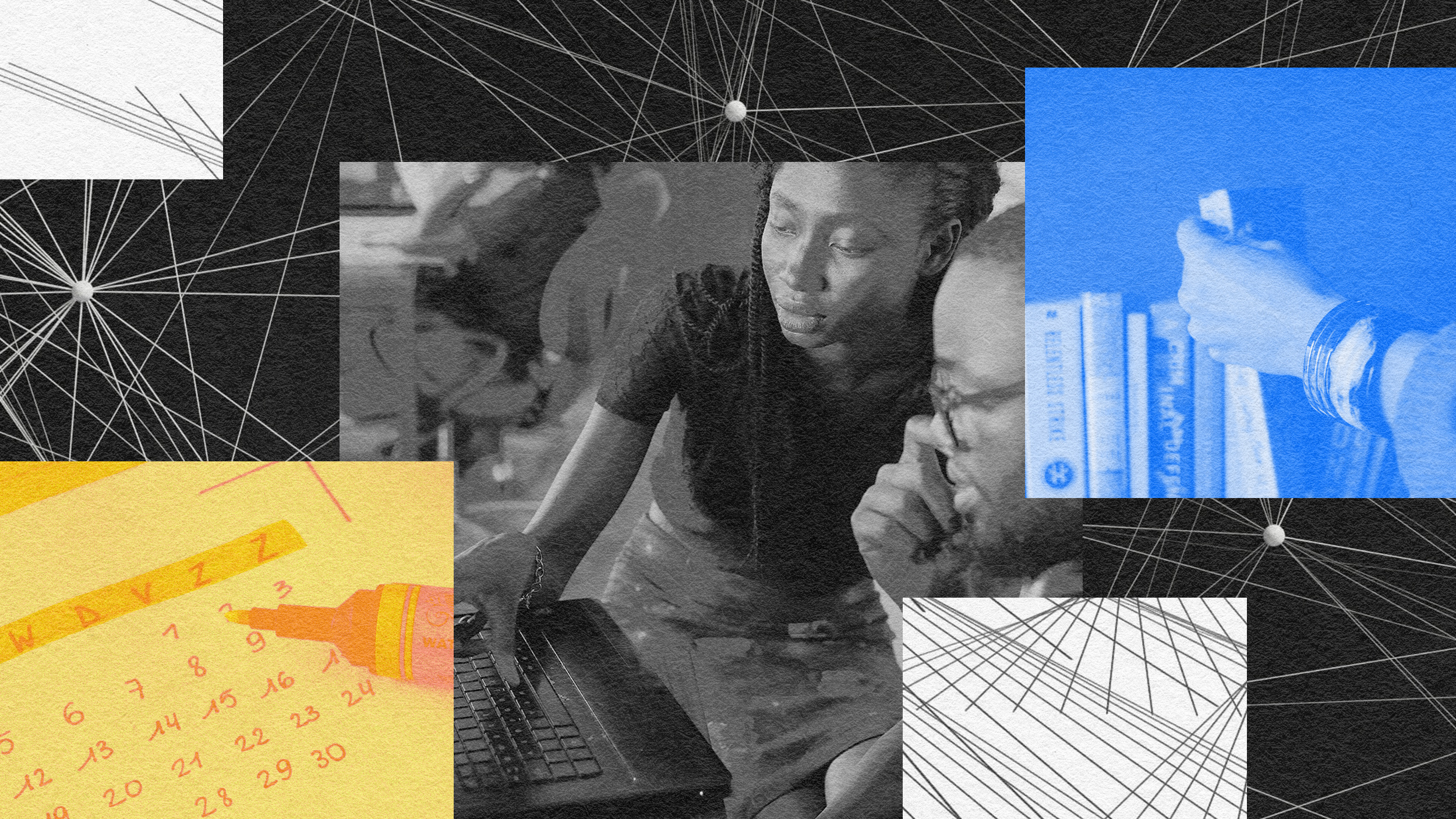The best way to unlock potential? Don’t focus on raw talent

- Many assume that raw talent is the prerequisite for success.
- However, this assumption can lead us to ignore areas where we can improve, ultimately devaluing our total potential.
- To unlock your potential or help someone unlock theirs, set realistic goals and build a relationship with a caring coach.
By all accounts, Philipp Meyer is a talented writer. He has won the Los Angeles Times Book Prize and been a finalist for the Pulitzer Prize. His novels have been compared to the pantheon of Faulkner, McCarthy, and Salinger. He was even knighted into the Ordre des Arts et des Lettres, a French institution that honors contributions to the arts with fancy titles and military-styled medals (for some reason).
Meyer must have recognized his potential as a writer early and earned his success by playing to his strengths, right? No. Not really.
By his own account, Meyer is no prodigy. He dropped out of school when he was 16 and worked as a bike mechanic before writing fiction in his 20s at Cornell University. For the next decade, he produced nothing of note. His first novel was a 600-page plotless slog that he described as “self-indulgent undergrad nonsense.” He submitted his second novel straight to the trash.
“I spent 10 years wanting to write but apparently I wasn’t good at it,” Meyer told The Daily Stoic. “I kept on failing. What I saw about my career, early on, is that all I did was fail. That was my impression of it. And then after 15 years or so, American Rust was published.”
Meyer’s story is a reminder that our cultural obsession with raw talent is misguided. To truly unlock potential — either your own or that of the people you lead and teach — you must refine your shortcomings, too.
Potential is more than raw talent
It feels natural that talent should be the prerequisite for success. It is, after all, the premise of every child prodigy story, from Mozart to Tiger Woods. That assumption bleeds into our schools and workplaces, too, where we separate the “obviously gifted” into special programs that help them realize their potential.
“We live in a world that is obsessed with raw talent,” organizational psychologist Adam Grant said. “[But] focusing on where people start causes us to overlook the distances they are capable of traveling.”
In an interview with Big Think, Grant admitted he wasn’t recognized as a gifted professor at first. Probably because he wasn’t, and early student evaluations reflected his faults brutally. One student told Grant that he was such a nervous presenter that it made everyone sweat. Another said he reminded him of a Muppet.
“If I had judged my potential by that starting ability, I would’ve quit,” Grant said. But he persisted, and today, he’s a top-rated professor at the Wharton School, a best-selling author, and one of TED’s most popular speakers.
Grant and Meyer’s stories remind us that while raw talent and early wins are nice, they are also poor indicators of someone’s long-term potential. That potential can only be realized through hard work, strategic improvement, effective failure, and — if we’re being honest — some good luck.
When we don’t appreciate this fact, we can often fall for another, equally wrong, assumption: That hard work signals a lack of talent and, by extension, potential. This assumption can even stymie top-of-the-class talent as it leads to toxic beliefs that contaminate confidence and persistence.
Unlocking potential
Unlocking one’s potential is as much an act of self-craftsmanship as it is self-discovery. It requires developing an honest assessment of one’s strengths and weaknesses. It also demands a realistic improvement plan that is paired with a strong work ethic. A healthy dollop of enthusiasm doesn’t hurt either.
Here are some strategies to help you unlock your potential or help someone else realize theirs:
1. Cultivate a growth mindset
The belief that raw talent fuels success is representative of a fixed mindset. This view of potential considers abilities to be predetermined. Conversely, a growth mindset views one’s abilities as capable of being enhanced. Research shows that a growth mindset helps students perform better in school and leaders cultivate teams that are more creative and solution-driven.
With that said, research also shows that such a mindset isn’t a magic bullet. Actual growth still requires the dedication of time and energy to see results. As such, the mindset is best viewed as a catalyst that drives us to improve and not grow complacent in our strengths.
While raw talent and early wins are nice, they are also poor indicators of someone’s long-term potential.
2. Focus on goals, control, and self-belief
One reason individuals or teams may lean on their talents is that admitting areas of weakness can be discomforting. This can be especially true if we feel in competition with others or our shortcomings will be publicly ridiculed.
Sports psychologist Noel Brick calls this discomfort a “threat state,” and like a physical threat, this emotional one can activate our fight-flight-or-freeze response when facing a challenge. To ease this sense of dread, Brick recommends three strategies:
Shift the focus to what is controllable. Focusing on what you can’t control leads to anxiety and worry. By placing your focus on what you do control, your impact will align more squarely with your efforts.
Set goals aimed at personal growth. Goals based on being better than others or winning other people’s recognition again place success outside your efforts. When goals instead aim toward improving a personal standard, you can set them to be both realistic and manageable.
Build self-belief. If people feel a task is beyond their skills, they will panic at the thought of tackling it, leading to habits such as procrastination. If we believe we have the skills necessary to succeed, however, we boost our self-confidence and our willingness to engage.
If a person lacks self-belief, this can be difficult to instill. Luckily, research shows that personal development, even if discomforting, motivates engagement and perceived goal attainment. It also helps people foster self-efficacy and “self-complexity” — that is, when people value the many aspects of their personhood (versus over-valuing just one aspect).
“Part of genius is knowing what you don’t know and where you would benefit from improvement,” Brick writes with journalist Scott Douglas.

3. Find (or be) a coach
Whether you are looking for a coach or hope to be one, Grant warns against two potential pitfalls. The first is a coach who hopes to improve performance by only criticizing faults. The second is a coach who only praises people’s strengths.
The critic’s method leads to burnout and deflated motivation, the cheerleader’s to complacency. The competent coach balances these extremes.
Coaches help others recognize their strengths as a building block of their potential. They also offer constructive criticism to help others shore up their shortcomings and energize them to do better tomorrow.
4. Don’t discount small improvements
Success doesn’t always end with praise, recognition, and accolades. Sometimes, developing potential and improving will, at best, raise a skill from poor to average. Yet, these small successes have value in unlocking potential, too.
As psychologist James Kaufman writes, he was originally discouraged from creative writing because he didn’t think he had the potential to stand alongside the greats. This “genius bias” led him to assume his creativity wasn’t worth anything unless brilliant. However, he soon discovered that he could use his “little-c” creativity to not only strengthen his talents as a scholar but also bring more joy to his work.
Just as a person’s strengths can bolster their weaknesses, so too can small improvements have an outsized impact on shoring up one’s strengths.
Reassessing potential
Of course, not focusing on your strengths isn’t the same as ignoring them. Unlocking potential is an act of developing the whole self. It asks you to grow, bring your strengths to new heights, and strive for the goals you want in your life.
As Grant noted: “One of my greatest disappointments in life has been seeing people squander their potential. We constantly underestimate our own capacities, and we’re also vulnerable to underestimating what other people are capable of achieving.”




